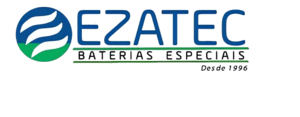Universidade Federal de Minas Gerais
Escola de Engenharia
Programa de Pós-Graduação em Engenharia Elétrica
COMPENSAÇÃO DA FORMA DE ONDA DE UM INVERSOR PWM
UTILIZANDO UMA TÉCNICA DE CONTROLE REPETITIVO
Vinícius Cordeiro Durães Araújo
Dissertação de Mestrado submetida à Banca Examinadora
designada pelo Colegiado do Programa de Pós-
Graduação em Engenharia Elétrica da Escola de
Engenharia da Universidade Federal de Minas Gerais,
como requisito para obtenção do Título de Mestre em
Engenharia Elétrica
Orientador: Prof. Porfírio Cabaleiro Cortizo
Belo Horizonte - MG-BRASIL
Agosto de 2011
RESUMO
Os inversores para sistemas UPS devem fornecer uma tensão de saída
regulada e com baixo valor de distorção harmônica total (THD - Total harmonic
distortion). Este trabalho apresenta um estudo de diversas técnicas de controle
para o estágio de saída de um sistema UPS. Foi realizada uma pesquisa
bibliográfica de estratégias de controle que contemplam este objetivo. A
utilização de uma técnica de controle digital para regular o valor RMS da forma
de onda associada com a ação integral repetitiva é avaliada para inversores PWM
de baixo custo. Como resultado da ação integral repetitiva, esta estratégia de
controle digital reduz o erro de regime permanente e as distorções causada por
perturbações periódicas tais como cargas não lineares. Além disso, a técnica de
controle digital analisada mede apenas a tensão de saída, reduzindo o custo com
sensores.
LINK
http://www.bibliotecadigital.ufmg.br/dspace/bitstream/handle/1843/BUOS-98KJJ7/199m.pdf?sequence=1


.gif)




